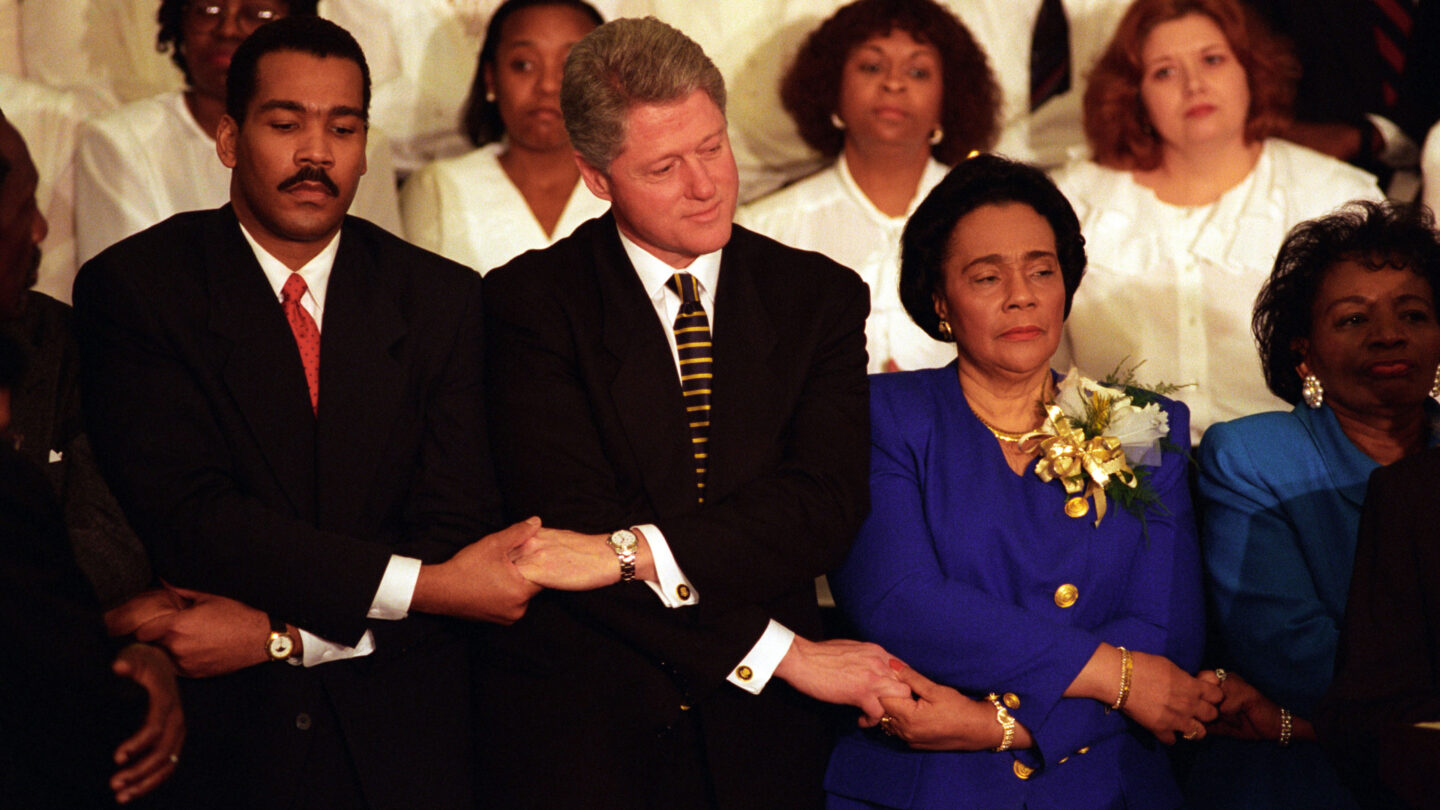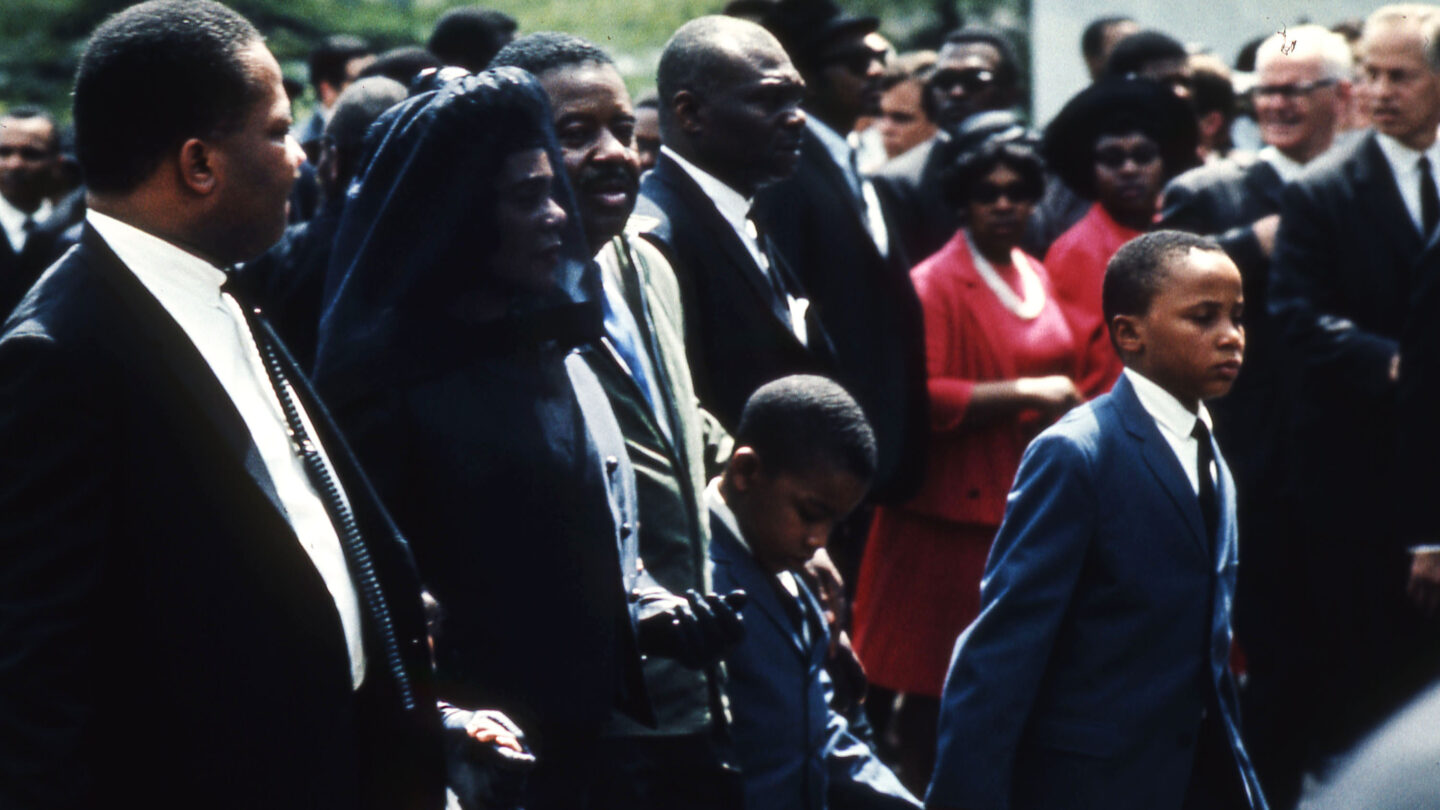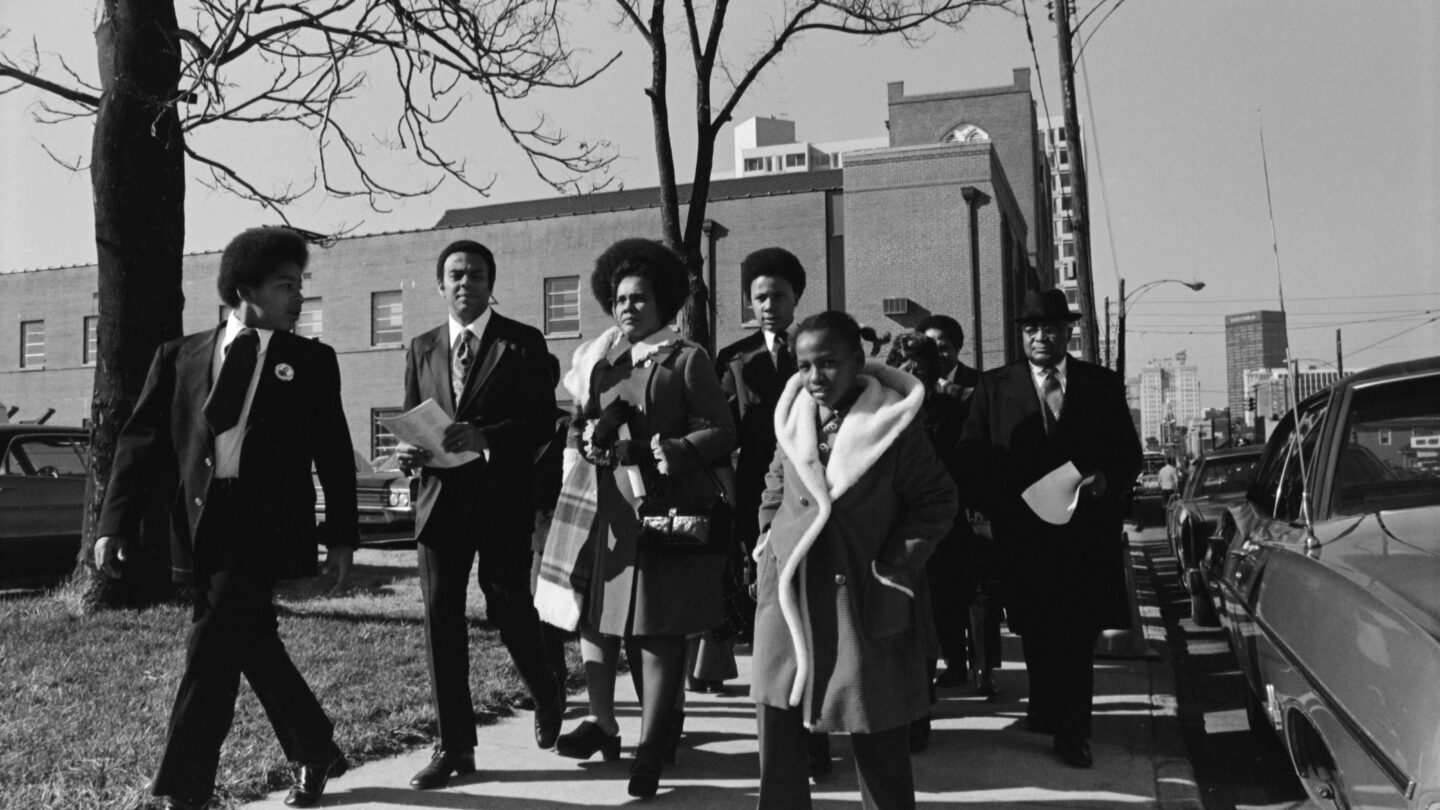
From left, Dexter King joins hands with former President Bill Clinton, and Coretta Scott King during a Martin Luther King, Jr. Commemorative Service at Ebenezer Baptist Church in Atlanta. Ralph Alswang, White House Photograph Office
Dexter Scott King, the youngest son of civil rights leaders Dr. Martin Luther King Jr. and Coretta Scott King, died on January 22, 2024, after a three-year battle with prostate cancer. King, known for advocating for marginalized communities, continued his parents’ legacy of civil and human rights activism.
Born in Atlanta on January 30, 1961, he was named after the Dexter Avenue Baptist Church in Alabama, where his father, Dr. Martin Luther King Jr., had served as pastor. Growing up during the civil rights movement, he frequently joined his father and brother, Martin Luther King III, at public speaking events. These early experiences ingrained in him the importance of his father’s commitment to nonviolent activism.
Dexter King’s early life was shaped by significant personal tragedies. At the age of 7, he lost his father, Dr. Martin Luther King Jr., to an assassin’s bullet in 1968, and at 13, his grandmother, Alberta Williams King, was also assassinated. These events deeply influenced his commitment to the principles of nonviolent activism. Rather than deterring him, these losses strengthened King’s resolve to continue and expand upon his father and mother’s work in civil and human rights.

From left, A.D. King, Coretta Scott King, Ralph David Abernathy, Jr., Dexter King, and Martin Luther King, III during the funeral of Dr. Martin Luther King, Jr. Floyd Jillson, Floyd Jillson Photographs, Kenan Research Center at Atlanta History Center
King followed in his family’s footsteps by enrolling at Morehouse College in 1979 to study business administration. However, breaking with tradition set by four generations of King men, he left before earning his degree. In 1989, at 28, King became president of the King Center for Nonviolent Social Change. In this role, he worked to transform the center into a hub for nonviolent protest and activism. He introduced innovative strategies to enhance the center’s role in the civil rights and social justice movements.

From left, Dexter King, the son of Dr. Martin Luther King, Jr.; Congressman Andrew Young; Coretta Scott King, the widow of Dr. Martin Luther King, Jr.; Martin Luther King III, the son of Dr. Martin Luther King, Jr.; Bernice King, the daughter of Dr. Martin Luther King, Jr.; and the Reverend Martin Luther King, Sr. walking along Auburn Avenue during a commemorative celebration marking Dr. King’s birthday, in Atlanta, Georgia. Boyd Lewis, Boyd Lewis Photographs, Kenan Research Center at Atlanta History Center
Beyond his work at the center, Dexter King served as the chief executive officer of the King Estate, overseeing the management of the licensing of Martin Luther King Jr.’s image and likeness. He actively pursued legal actions against corporations and media entities that utilized Martin Luther King Jr.’s quotations and images without appropriate authorization. Dexter King played a crucial role in the 2005 sale of the King Papers to the City of Atlanta for $32 million, a move that ensured the preservation and accessibility of his father’s legacy for future generations.
Dexter King also pursued interests in the arts, focusing on acting and film production. In the 1999 Emmy-nominated animated film “Our Friend, Martin,” he was one of the actors who voiced Dr. Martin Luther King Jr. Alongside actors such as Angela Bassett, Whoopi Goldberg, Samuel L. Jackson, John Travolta, and Oprah Winfrey, King helped bring Dr. Martin Luther King Jr.’s story to life through animation. The film is now widely used in educational settings to teach young students about Dr. Martin Luther King Jr.’s legacy.
In addition, King is remembered for expanding his advocacy beyond human rights to include animal welfare and environmental sustainability. He was an ardent advocate for animal rights, who saw animal welfare as a key component of the broader social justice movement. King’s adoption of a vegan lifestyle reflected his commitment to compassion and justice across species.
Dexter King is survived by his wife of 11 years, Leah Weber King; his siblings, Martin Luther King III and Rev. Bernice King; and his niece, Yolanda Renee King. The King family’s commitment to social justice and equality remains a significant influence in the ongoing struggle for a more equitable and compassionate world.



